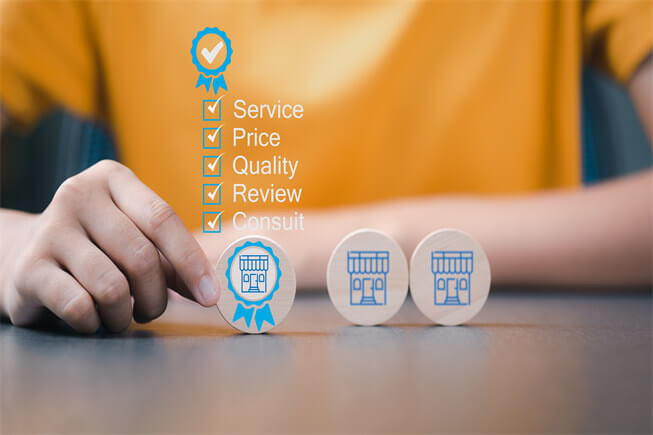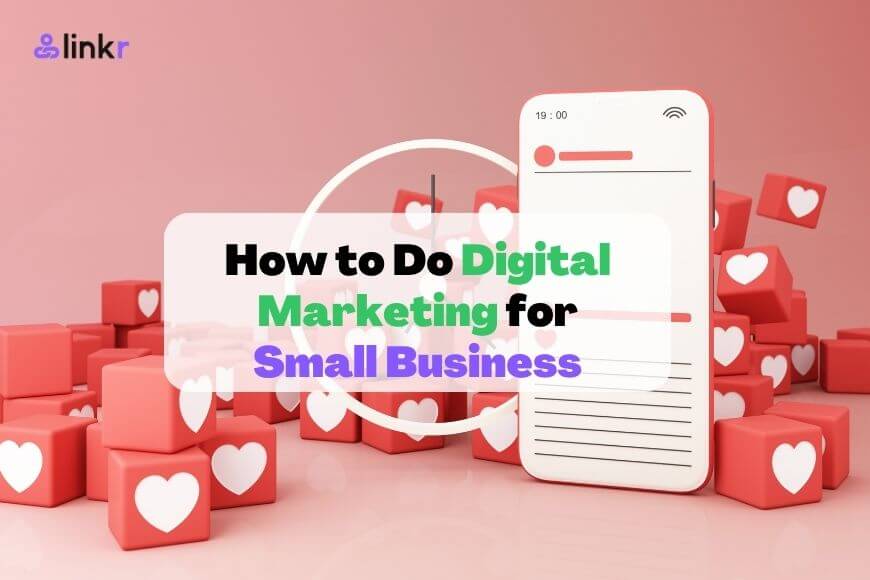How to Do Digital Marketing for Small Business Online
Digital marketing has emerged as a critical tactic for small firms to build a strong online presence, draw clients, and spur growth in today’s cutthroat business environment. Small businesses may effectively reach their target audience, build brand awareness, and create leads with the correct strategy and digital marketing tools. In this post, we’ll look at the most important strategies and tactics for doing online digital marketing for small businesses.
Table of Contents
1. Define your digital marketing goals

Having clear goals is essential before beginning any digital marketing operations. Establish SMART (specific, measurable, attainable, relevant, and time-bound) goals that support the aims and principles of your company. Clearly defining your objectives will direct your digital marketing activities and allow you to measure performance efficiently, whether it’s growing website traffic, driving conversions, or improving brand visibility.
After you’ve established your goals and objectives, you can start creating a thorough digital marketing plan to assist you in achieving them.
2. Develop a comprehensive digital marketing strategy
For small business, developing an all-encompassing digital marketing plan is crucial. Choose the right digital channels, such as social media platforms, email marketing, content marketing, and search engine optimization (SEO), after identifying your target demographic and researching their online behavior. A coordinated approach will guarantee consistent messaging across mediums and increase your audience.
For instance, if you want to reach a younger audience, you might want to concentrate more on social media sites like Instagram and TikTok, which are well-liked by this demographic. You can create a content calendar to make sure you consistently post engaging, pertinent content for your target audience.
3. Utilize digital marketing solutions

Your efforts can be streamlined and useful insights can be obtained by investing in digital marketing solutions. Platforms like Linkr provide thorough management solutions (e.g. post, tiered membership, creator community, etc.) for your digital marketing efforts. You may improve your marketing strategy and take data-driven decisions with the help of features like campaign tracking, audience segmentation, and performance statistics.
As an additional option, you could want to think about spending money on other digital marketing tools like Hootsuite for managing social media or Google Analytics for website analytics. You can also look at additional solutions that can automate your work in digital marketing and save you time.
4. Leverage search engine optimization (SEO)
For your website to gain more organic visibility, search engine optimization is also very important. Conduct keyword research to find pertinent terms that relate to your company. To raise your website’s search engine ranks, use on-page SEO strategies including optimizing meta tags, producing excellent content, and constructing quality backlinks.
To further improve your visibility, you might also want to think about making an investment in paid search advertising on websites like Google Ads. If you are aiming for a particular region, you may also investigate alternative SEO tactics like local SEO.
5. Create engaging content

Digital marketing for small enterprises heavily relies on content marketing. Create compelling, high-quality material that appeals to your target audience. Use a variety of media, including podcasts, blog articles, videos, infographics, and all of the above, to diversity your content approach. To further expand your audience and credibility, you might want to think about working with influencers or other companies to produce co-branded content. To organize your material and make sure you are consistently producing new information, use a content calendar.
6. Utilize social media marketing
Utilize social media’s strength to establish connections with your target market. Choose the platforms that are most appropriate for your company and develop interesting profiles. To increase your audience and encourage conversions, provide excellent material frequently, engage with your followers, and make use of paid advertising opportunities. You might also think about working with social media influencers to spread the word about your company and broaden your audience. To enhance involvement, you may also look into additional social media marketing techniques like social media competitions or freebies.
📜Further learn the Importance of Social Media Engagement to Monetize Digital Content
7. Implement email marketing campaigns

Small businesses continue to benefit greatly from email marketing. Create an email list of potential clients and consumers who are interested and create campaigns that are captivating. To increase conversions and promote client loyalty, personalize your communications, offer insightful content, and use compelling calls to action. To further boost engagement, you might want to think about segmenting your email list depending on consumer behavior or interests. You can also investigate additional email marketing techniques like welcome emails or abandoned cart emails.
8. Embrace influencer marketing
The reach and reputation of your business can be dramatically increased by working with influencers in your sector. Find influencers whose followers are similar to your target market and create cooperative relationships with them. Influencers can spread the word about your brand and draw in new clients by writing product reviews, endorsing products, or posting sponsored material. Furthermore, you might want to think about working with micro-influencers, who have more specialized but engaged audiences. You can also investigate additional influencer marketing techniques like affiliate marketing and ambassadorship schemes.
9. Monitor and analyze performance

To determine the efficacy of your digital marketing activities, regularly monitor their results. Use analytics platforms and digital marketing tools to track important metrics like website traffic, conversion rates, and engagement levels. Your plans should be modified based on new information to consistently improve performance.
Besides that, you might want to think about using focus groups or customer surveys to get in-depth comments and ideas. A/B testing and heat mapping are two other performance monitoring techniques you might investigate.
10. Stay updated with digital Marketing trends
A dynamic industry, digital marketing is always changing due to emerging trends and technologies. Keep abreast of market advancements, new platforms, and cutting-edge tactics. You can adapt and stay one step ahead of the competition by using this knowledge. To stay current, go to industry gatherings and conferences, read trade journals and blogs, and connect with other digital marketing experts. You might look into additional options for staying informed, such as subscribing to digital marketing newsletters or following industry leaders on social media.
Conclusion
Small businesses have an exceptional opportunity to compete online thanks to digital marketing. Businesses need to set goals, create a strategy, employ digital marketing tools (like Linkr), and take use of SEO, content marketing, social media, email campaigns, and influencer collaborations in order to thrive. To achieve long-term success, keep up with trends, evaluate results, and fine-tune plans. Take advantage of internet marketing to expand your small business.




